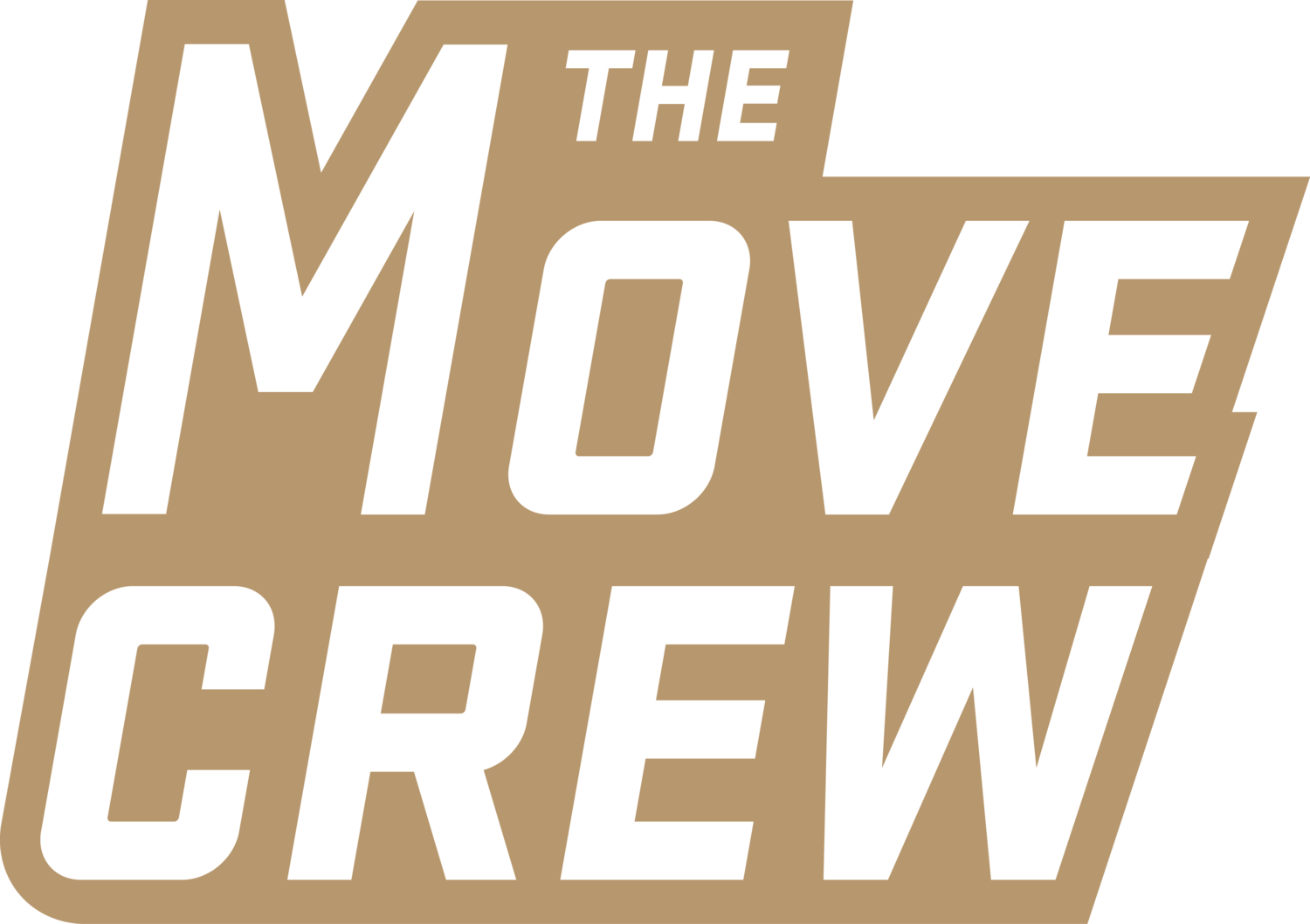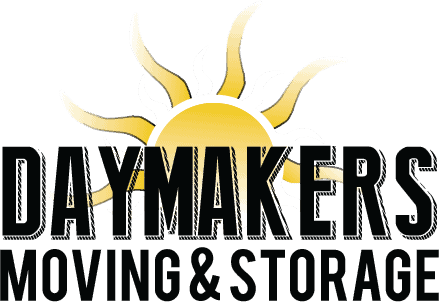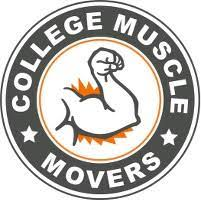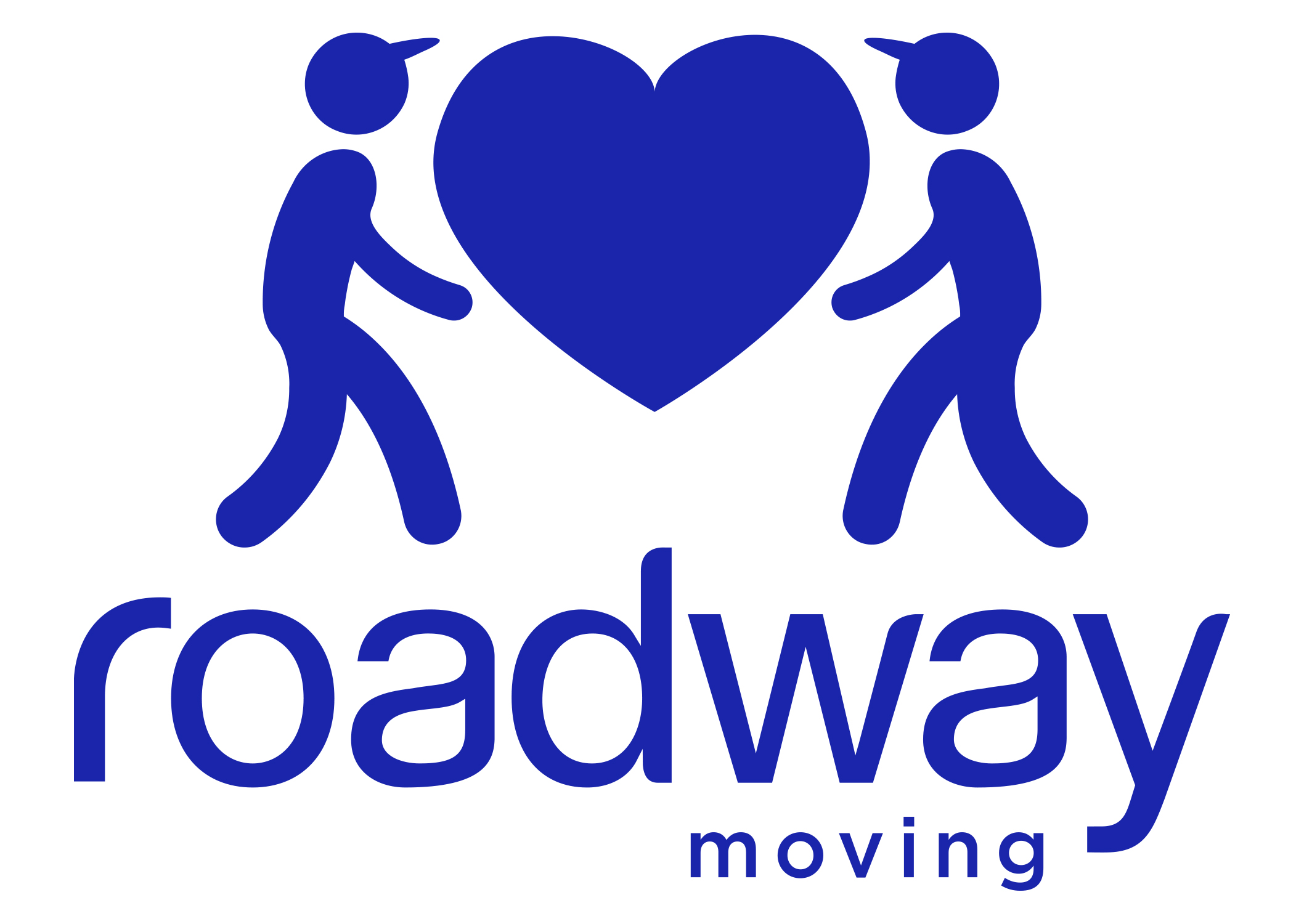Top local movers for St. Paul to Baltimore moves
Searching for a dependable local mover in St. Paul that also provides long-distance services to Baltimore can feel overwhelming. That’s where we come in — we’ve analyzed 35 local movers in St. Paul who specialize in long-distance relocations, factoring in cost, services, and customer feedback.
These are the best local moving companies for getting from St. Paul to Baltimore.
- Matt’s Moving Company : 4.66 out of 5 stars
- Piepho Moving & Storage, Inc.: 4.62 out of 5 stars
- Metcalf Moving & Storage: 4.5 out of 5 stars
- The Move Crew: 4.5 out of 5 stars
- Daymakers Moving & Storage: 4.5 out of 5 stars
Company Info
State license #: 374236
Years in Business: 17
DOT #: 1704106
Services Offered
- Local moves
- Interstate moves
- Packing
- Unpacking
- Offices
- Pianos
- Crating
- Storage
- Pay by credit card
Company Info
State license #: 286311
Years in Business: 73
DOT #: 286311
Alternate Names: Rochester Transfer & Storage Company
Services Offered
- Local moves
- Interstate moves
- International moves
- Packing
- Unpacking
- Offices
- Pianos
- Hot Tubs
- Pool Tables
- Art
- Antiques
- Grandfather clocks
- Crating
- Crane vans
- Shipment tracking
- Full-valuation coverage
- Safes
- Pay by money order
- Pay by cash
- Pay by credit card
Company Info
Years in Business: 105
DOT #: 1127088
Services Offered
- Local moves
- Interstate moves
- International moves
- Packing
- Unpacking
- Offices
- Pianos
- Crating
- Full-valuation coverage
- Storage
- Pay by credit card
Company Info
State license #: 380620
Years in Business: 10
DOT #: 2552505
Services Offered
- Local moves
- Interstate moves
- Packing
- Unpacking
- Offices
- Pianos
- Crating
- Storage
- Pay by credit card
Company Info
Years in Business: 8
DOT #: 2593674
Services Offered
- Local moves
- Interstate moves
- Packing
- Unpacking
- Offices
- Pianos
- Pool Tables
- Art
- Antiques
- Crating
- Full-valuation coverage
- Storage
- Safes
- Pay by credit card
How much does it cost to move from St. Paul to Baltimore?
Movers in Minnesota generally charge an average of $209 per hour. Check out these typical costs for a full-service moving company, moving container, or truck rental:
| Move size | Moving company | Moving container | Rental truck |
|---|---|---|---|
| Studio / 1 bedroom | $1,127 – $4,898 | $868 – $2,038 | $698 – $1,302 |
| 2 – 3 bedrooms | $2,636 – $5,943 | $1,407 – $2,870 | $718 – $1,579 |
| 4+ bedrooms | $4,315 – $8,242 | $1,981 – $3,828 | $912 – $1,866 |
Cost to hire movers from St. Paul to Baltimore
Moving a studio or one-bedroom home from St. Paul to Baltimore typically costs between $1,127 and $4,898. For a two- or three-bedroom home, expect prices to fall between $2,636 and $5,943 when moving from St. Paul to Baltimore. If you’re tackling a large move (think four or five bedrooms) from St. Paul to Baltimore, you’re looking at costs ranging from $4,315 up to $8,242.
Cost of moving containers from St. Paul to Baltimore
If you’re relocating from St. Paul to Baltimore, you’ll typically spend between $868 and $2,038 for a small move. Have a two or three-bedroom home? Plan for costs to range from $1,407 up to $2,870. If you’re moving a larger home — four bedrooms or more — expect to pay anywhere between $1,981 and $3,828. For a full breakdown, check out our complete PODS cost guide.
Explore our top budget-friendly moving container companies for your move from Minnesota.
Cost of moving truck rentals from St. Paul to Baltimore
Renting a moving truck is typically the most budget-friendly choice for a St. Paul to Baltimore move, but remember, you’ll be responsible for all the heavy lifting, packing, and driving on your own.
If you’re moving from a studio or one-bedroom place with a rental truck, expect to pay between $698 and $1,302. For a two- or three-bedroom move, costs usually range from $718 to $1,579. If you’re tackling a four-bedroom or bigger move, your rental truck will likely run between $912 and $1,866.
Estimated fuel costs are already factored into these quotes.
Major factors affecting moving costs from St. Paul to Baltimore
The cost of St. Paul movers will depend on:
- Move size: The cost of your move depends on how much you’re bringing. A one-bedroom from St. Paul to Baltimore might be as low as $2,356, while a four-bedroom could reach $7,344.
- When you move: Moving in summer often costs more, since it’s the busiest season for movers in St. Paul.
- DIY moves vs. full-service help: Truck rentals cost less — around $698 to $1,607 — but you’ll handle all the labor vs. letting professionals do it.
What to know before moving from St. Paul to Baltimore
Expect a bump in monthly expenses after the move – Baltimore runs about -39% higher for singles and 19% higher for families than St. Paul.
Singles spend around $2,223 in St. Paul versus $3,633 in St. Paul; families pay $5,088 compared with $4,290.
Dig into the side-by-side details here:
| St. Paul | Baltimore | |
|---|---|---|
| Average 1 BR rent | $1,892 | |
| Average 3 BR rent | $3,333 | |
| Average home value | $278,221 | $180,790 |
| Average income (per capita) | $63,483 | $58,349 |
| Cost of living (single) | $3,633 | $2,223 |
| Cost of living (family of four) | $4,290 | $5,088 |
| Unemployment rate | 4.9% | 7.9% |
| Sales tax | 9.88% | 6.0% |
| State income tax | 9.85% | 5.75% |
- Consider this before moving: Rent can be about 19% higher in Baltimore than in St. Paul, which may impact your monthly finances.
- With home prices being nearly 35% cheaper in Baltimore, your mortgage budget will remain the same without any significant changes.
- Be sure to look over your budget before making the move. The average income is about 8% lower in Baltimore than in St. Paul.
- Prepare to enjoy reduced routine costs such as groceries, fuel, and utilities in Baltimore. The cost of living for a single person is 39% less compared to St. Paul.
- As you plan your move to Baltimore, consider the possibility of increased living costs. The cost of living for a family there is 19% more than it is in St. Paul.
- The unemployment rate in Baltimore exceeds that of St. Paul by about 61%, resulting in a larger pool of potential workers and thus more hiring competition.
- Sales taxes are 39% lower in Baltimore than St. Paul, a factor that could decrease expenditure on taxable items if your consumption is higher.
- Income taxes are 42% lower in Maryland than in Minnesota. Lower income tax rates mean less money is withheld from your paycheck, giving you more flexibility to save, invest, or cover everyday expenses.
Take a detailed look at how everyday expenses stack up between St. Paul and Baltimore, from monthly bills to routine purchases:
| Living Expense | St. Paul | Baltimore |
|---|---|---|
| Basic utilities | $181.61 | |
| Cell phone plan | $56.81 | |
| Dozen eggs | $4.34 | |
| Loaf of bread | $3.91 | |
| Fast-food/casual eatery (one meal) | $20.00 | |
| Dinner for 2 (mid-range restaurant) | $80.00 | |
| Gym membership | $57.63 |
How life is different in St. Paul vs. Baltimore
| St. Paul | Baltimore | |
|---|---|---|
| Population | 303,176 | 585,708 |
| Transportation score | 8 | 8 |
| Walkability score | 60 | 64 |
| Bike friendliness score | 64 | 53 |
| Crime index | 50.86 | 72.72 |
| Safety index | 49.14 | 27.28 |
| Air quality | Good | Good |
- Baltimore’s population is about 93% greater than St. Paul.
- Baltimore’s public transportation score is within about 5% of St. Paul, making them very similar.
- Baltimore is more walkable than St. Paul with a score of 64 out of 100 vs St. Paul’s 60 out of 100.
- Baltimore has a bike-friendliness score of 53 out of 100, which means it isn’t as accessible or safe for cyclists as St. Paul, which has a score of 64.
- Baltimore’s crime rate is higher than St. Paul with a score of 72.72 compared to St. Paul’s 50.86. This means that Baltimore neighborhoods are safer than 72.72% of all U.S. neighborhoods, and St. Paul neighborhoods are safer than 50.86%.
- Baltimore is considered to be less safe than St. Paul with a score of 27.28 vs St. Paul’s 49.14.
- Air quality in Baltimore is Good, and in St. Paul it’s Good.
Other things to consider for your St. Paul to Baltimore move
- HOA rules: To keep things running smoothly, make sure you’re familiar with any HOA or community moving policies before the big day.
- Elevator reservation: If there is an elevator in your building, it’s a good idea to secure a reservation before your moving day.
- Truck parking permits: Research parking requirements in your destination city to ensure your truck won’t run into restrictions.
- State licensing: Although a local license is not required in Maryland, make sure the moving company you’ll be hiring is registered with U.S. Department of Transportation (USDOT). To verify if you’re dealing with a legal and licensed mover, you may ask them their USDOT registration number. Make sure the moving company you use has a license before hiring.
- State regulator: You can check the status of a Maryland moving license through the state’s public utilities commission.
- Moving Permits: You won’t need a moving permit in Maryland, though it’s smart to double-check any local parking restrictions ahead of your move.
- Change of address: We recommend submitting your USPS change of address form at least one week before your move to ensure your mail gets forwarded to Baltimore without delay. You can select your official move date when completing the form. Start the process here.
- Moving company insurance: State laws differ on mover insurance. In Alabama, Released Value Protection stands out as the most economical option, incurring no additional costs. Provided by movers at no extra charge, it offers minimal coverage at 60 cents per pound per article. For those seeking comprehensive coverage, it is advisable to consult with your chosen moving company for alternative options or explore third-party insurance providers.
- Moving checklist: Our moving checklist will help you have the peace of mind that you’ve got everything covered.
Where to live in Baltimore
Ready to relocate to America’s Comeback Cit? Here are some of the top neighborhoods to consider in Baltimore.
Best neighborhoods for singles
- Federal Hill
- Fells Point
- Mid-Town Belvedere
- Mount Vernon
- South Baltimore
Best neighborhoods for families
- Catonsville
- Mount Washington
- Pikesville
- Roland Park
- Towson
Things to do in Baltimore
Now that you’ve made the move to Maryland, it’s the perfect time to explore Baltimore. From local hotspots to hidden gems, there’s something to enjoy for every lifestyle:
- Arts and culture: Cultural attractions in Baltimore include museums and art centers like the The Walters Art Museum, American Visionary Art Museum, Baltimore Museum of Art, and B&O Railroad Museum.
- Outdoor recreation: Outdoor lovers will appreciate Federal Hill Park, Patterson Park, Canton Waterfront Park, and Leakin Park, along with many other spots perfect for walking, cycling, and fresh air adventures.
- Sports: Catch a live game and cheer on the home team at an Baltimore Orioles (MLB)Baltimore Ravens (NFL) game.
FAQ
When is the best time to move from St. Paul to Baltimore?
Spring and fall are the ideal times to move from St. Paul to Baltimore. You’ll benefit from more comfortable weather and avoid the higher prices that come with peak moving season in St. Paul.
When is the cheapest time to move from St. Paul to Baltimore?
With many people choosing to move from St. Paul to Baltimore in spring or fall, winter moves often come with better rates. Take a look at our moving discounts guide to find out how to save.
How long does a move from St. Paul to Baltimore take?
Covering 1,109 miles, the move from St. Paul, MN to Baltimore, typically takes two to eight days. Some St. Paul movers may offer faster options, and if your timing is flexible, storage services in Baltimore can help bridge the gap.
Do movers in St. Paul offer any discounts?
Many do — and the types of discounts available can help you cut costs. 3 movers in St. Paul offer AAA member savings. 1 movers provide military discounts. 2 movers extend senior citizen discounts.
Because offers change, confirm details with your mover to make sure you’re getting the most out of available deals.
How many movers in St. Paul can handle specialty items for my move to Baltimore?
Specialty moving services aren’t offered by every company. In St. Paul, 28 movers can handle pianos. 13 offer antique moving services. Compared to the rest of MN, there are 42 piano movers and 17 antique movers, while nationwide the numbers are 2,299 and 1,464 respectively.
If you need these services, it’s best to book early — availability can be limited, especially during peak moving months.
Helpful moving resources
St. Paul moving services
Popular Minnesota routes
- Minnesota to Maryland car shippers
- Minnesota to California movers
- Minnesota to Florida movers
- Minnesota to Georgia movers
- Minnesota to Illinois movers
- Minnesota to Michigan movers
- Minnesota to New York movers
- Minnesota to North Carolina movers
- Minnesota to Ohio movers
- Minnesota to Pennsylvania movers
- Minnesota to Texas movers
- See All Moving Routes
Not what you were looking for?
Check out other categories that can help you find the information you need!



























